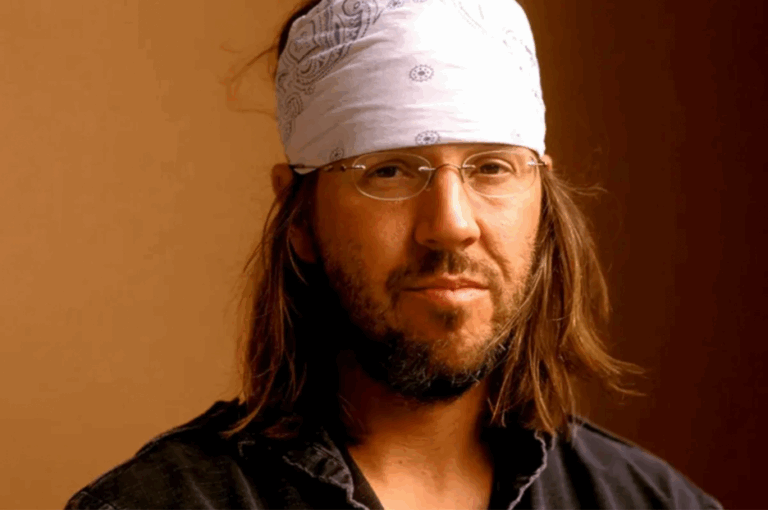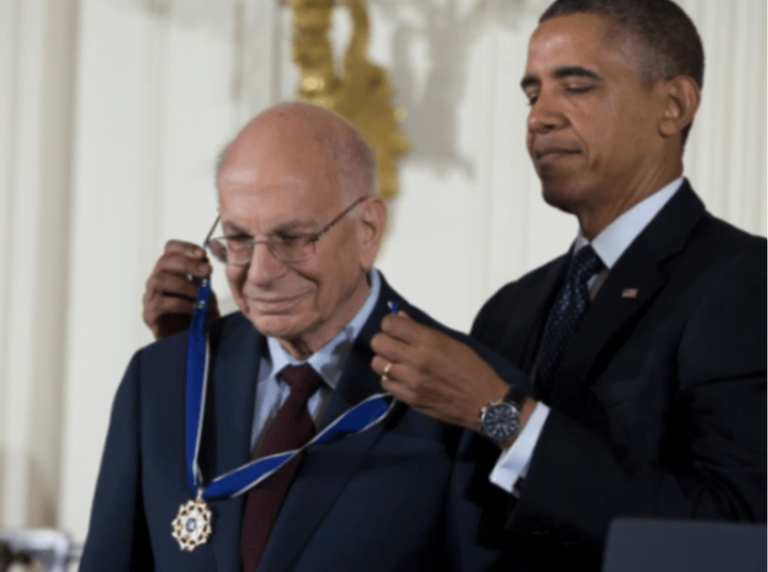Talking Big Ideas.
“We can’t guarantee success.
But we can deserve it.”
~ John Adams
The Battle of Brooklyn was a disastrous defeat.
The British crushed George Washington in the largest fight ever fought in North America at the time.
Historian David McCullough explains in his book 1776 how this was the first major battle after the signing of the Declaration of Independence. The British destroyed the Continental Army and could have quickly ended the rebellion less than two months after it formally began by simply sailing up the East River to finish off Washington and his remaining troops.
But the wind picked up.
The British couldn’t effectively sail into the wind. So they didn’t. In an interview with Charlie Rose, McCullough said, “If the wind had been in the other direction on the night of August 28th, I think it would have all been over.”
Rose replied: “No United States of America if that had happened?”
“I don’t think so.”
“Just because of the wind, history was changed?”
“Absolutely.”
Washington escaped from the jaws of defeat and lived to continue fighting. A year later, our brilliant founding mother Abigail Adams wrote to her husband John:
Posterity who are to reap the Blessings, will scarcely be able to conceive the Hardships and Sufferings of their Ancestors.
174 years after the Battle of Brooklyn, the United States once again escaped from the jaws of defeat. This video brings to life how close the communists were to securing control of the entire Korean peninsula and outright winning the Korean War:
The war ended with the communists controlling the North and the South remaining under the influence and support of the United States and its allies.
The difference today in the quality of life between the two Koreas is stunning. The South enjoys lives akin to our own: the freedom to be themselves in an atmosphere of unprecedented prosperity and technological innovation.
By stark contrast, North Koreans suffer inside a totalitarian prison of forced labor, torture, starvation, and executions. They are, on average, about three inches shorter than South Koreans.
They were the exact same people just a couple of generations ago.
Wars matter. Institutions matter. Economic policies and governing structures play a vital role in determining the quality of our lives.
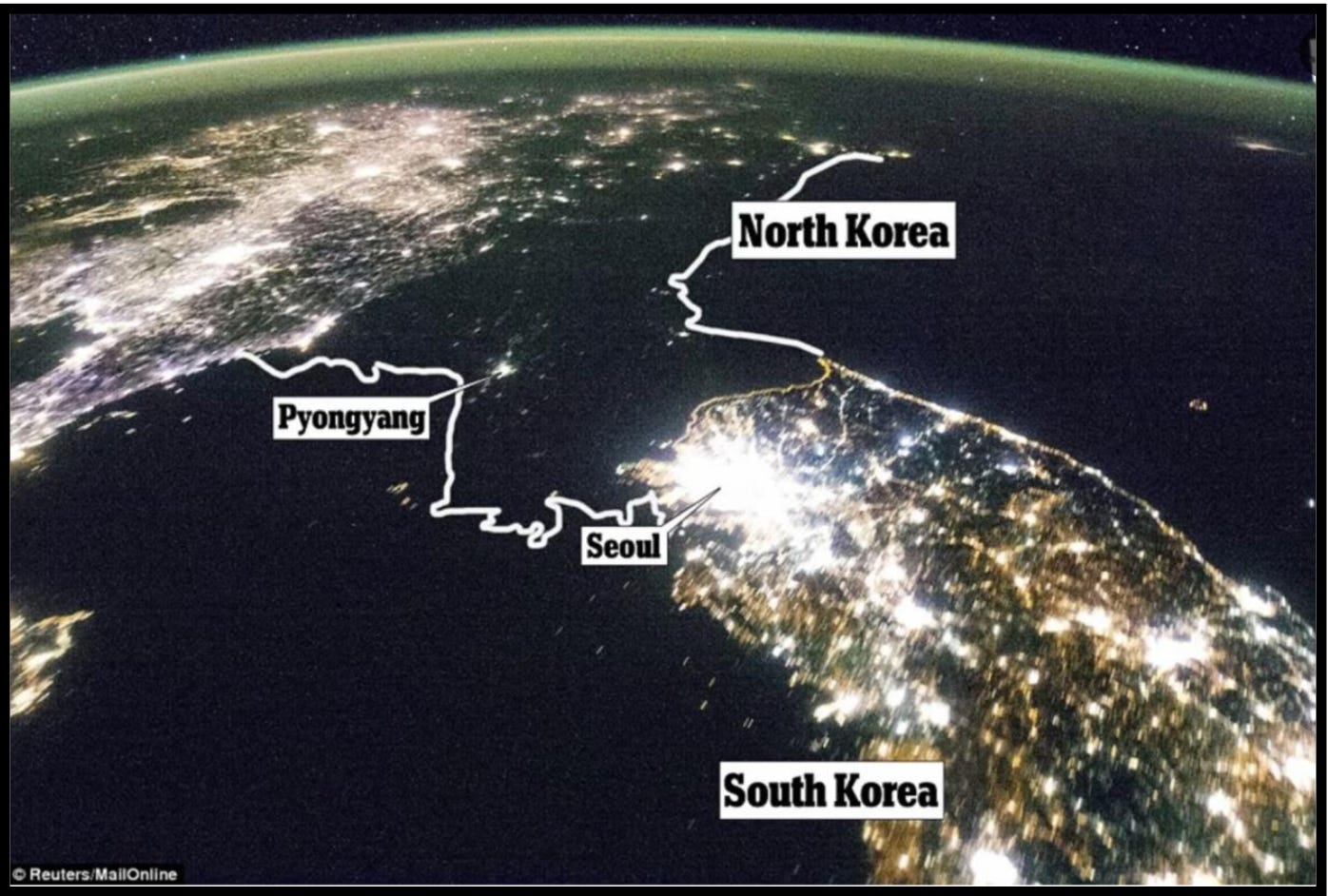
Imagine if you happened to have been born in North Korea. How different and awful your life would be.
Everyone in South Korea today owes a tremendous debt of gratitude to the men and women who fought back against the communists in the Korean War, just as everyone in America owes a tremendous debt of gratitude to those who ensured the birth of the United States.
Expressing such gratitude today isn’t in vogue. We are far more likely to complain.
The economist Max Roser wrote a fantastic essay called The world is awful. The world is much better. The world can be much better. All three statements in the title are true:
- The world is awful.
- The world is much better.
- The world can be much better.
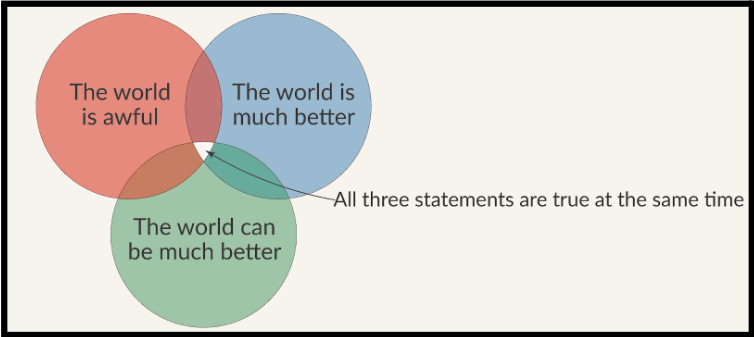
To focus on just one of these statements creates a misleading perspective of the world.
It is true, for example, that the world is awful. Our news outlets, social media feeds, and default mindsets tend to obsess over this fact. However, focusing solely on what is awful blinds us to reality.
Because the world is also much better.
Since the Battle of Brooklyn, for instance, life expectancy in the United States has more than doubled while the population increased over a hundredfold. Globally, the progress of our species has been mind-boggling:
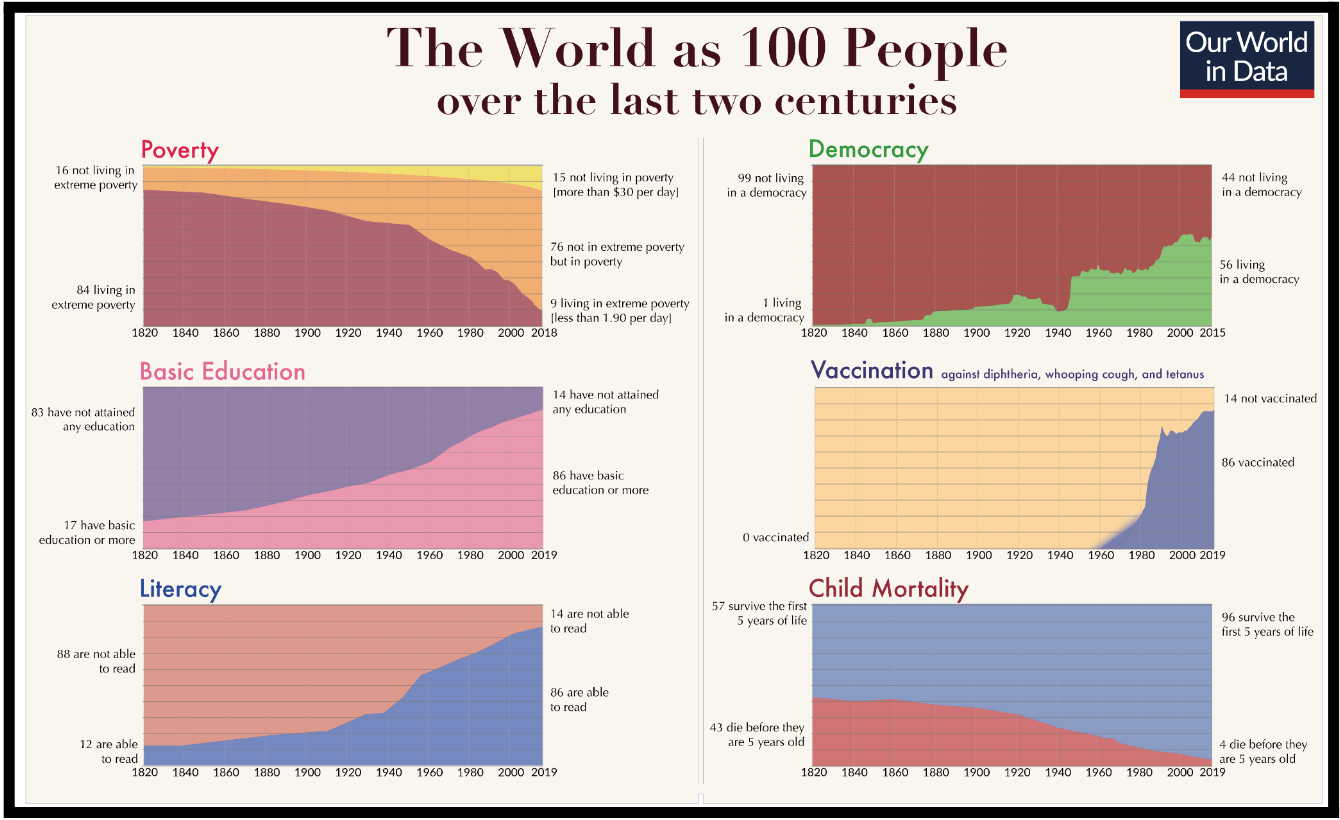
Since my parents were born, three times as many children worldwide survive into adulthood. The average human being lives longer, enjoys more leisure time, has more food to eat, and earns three times as much money. As Matt Ridley writes in The Rational Optimist, since 1955:
The average human is less likely to die from war, murder, childbirth, accidents, tornadoes, flooding, famine, whooping cough, tuberculosis, malaria, diphtheria, typhus, typhoid, measles, smallpox, scurvy, and polio. We’re more likely to be literate, finish school, have a telephone, a flush toilet, a frig, a bicycle. Infant survival is higher in every single country.
And yet, since 1955, the world population has doubled.
Ridley drives home that, contrary to pessimistic superstition, the poor have done even better than the rich. The average Mexican today lives longer than the average Briton did in 1955. The Chinese are 10 times as rich as they were in 1955. They live 28 years longer. Nigerians are twice as rich.
And absolute global poverty has dropped in half.
All of this since my parents were born.
Crucially, this heroic progress didn’t happen by accident. It is the direct result of people working together to build a better world.
And things can be much better than they are today. In the next few generations, it is possible for our posterity to cure heart disease, Alzheimer’s, cancer, and diabetes. We can already see how they may stop and even reverse climate change – along with biological aging.
We’ve begun building a new science and philosophy of progress and have already constructed blueprints and game plans to make space elevators, terraform Mars and Venus, create a Dyson sphere around the sun for unlimited clean energy, and conceived of a stellar engine that moves our entire solar system out of the way of future gamma-ray bursts and supernova explosions.
Max Roser writes:
If we want more people to dedicate their energy and money to making the world a better place, then we should make it much more widely known that it is possible to make the world a better place.
For this, we have to remember that all three statements are true at the same time: the world is awful, the world is much better, and the world can be much better.
It’s much easier to play the role of complaining, entitled rich kid than to conceive of the hardships our fathers and mothers endured as they laid the foundation for the incredible world we now enjoy. And the even better world we can build.
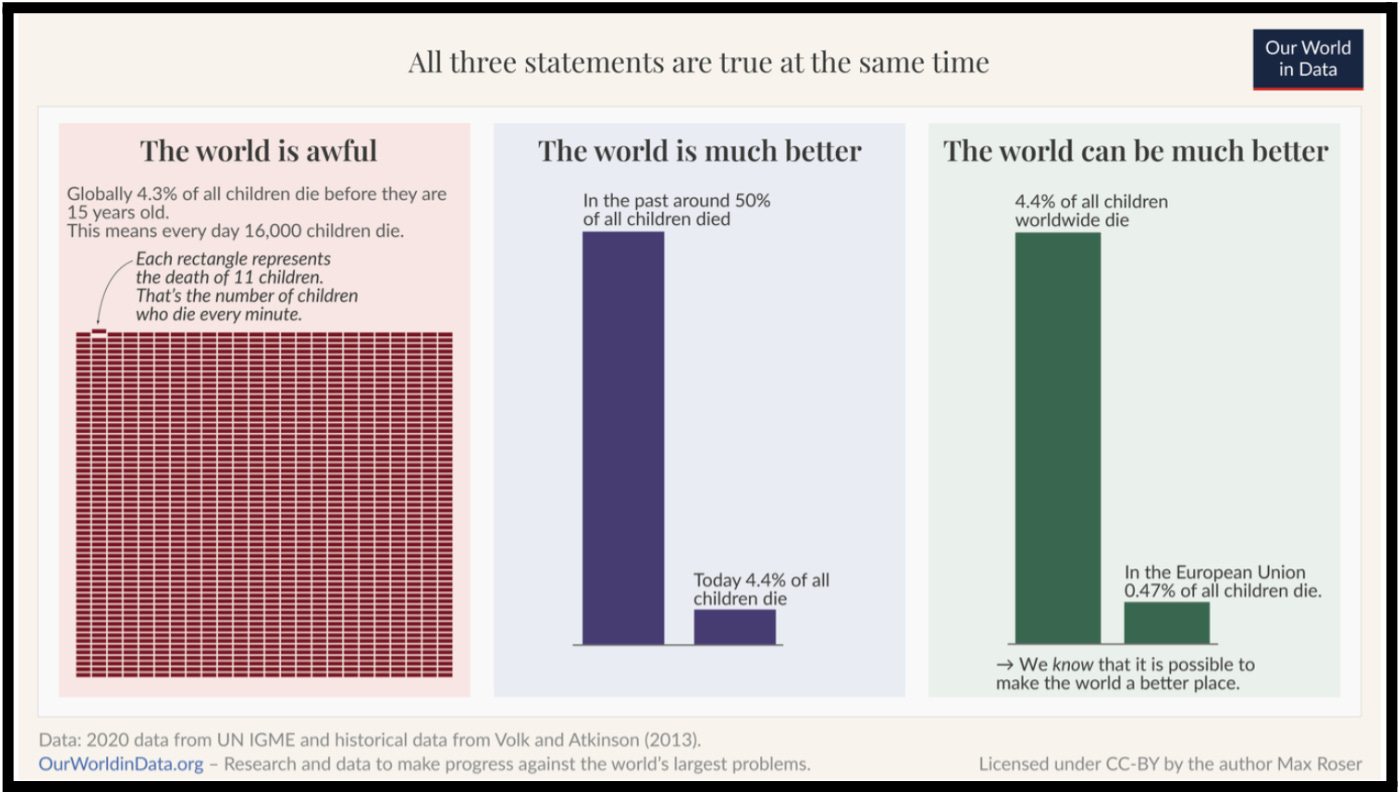
This Memorial Day weekend, I’m joining some buddies in a classic Durango event where we bike 50 miles north to a neighboring town and then party together. Long holiday weekends are an ideal time to pause from work, be present with loved ones, bond with our tribes, and enjoy our blessings with leisure and laughter.
Let’s also take a moment to embrace the spirit of Memorial Day: to reflect on the people who fought for and built our modern world – and to follow their lead in making the future even better for our posterity.
As the philosopher Karl Popper wrote:
The possibilities that lie in the future are infinite . . . we are all responsible for what the future holds in store. Thus it is our duty, not to prophesy evil but, rather, to fight for a better world.
I’ll be thinking of my grandfather. As a teenager, he spent his days in a claustrophobic airplane tail in frigid temperatures shooting Nazis out of the sky.
He fought for a better world.


